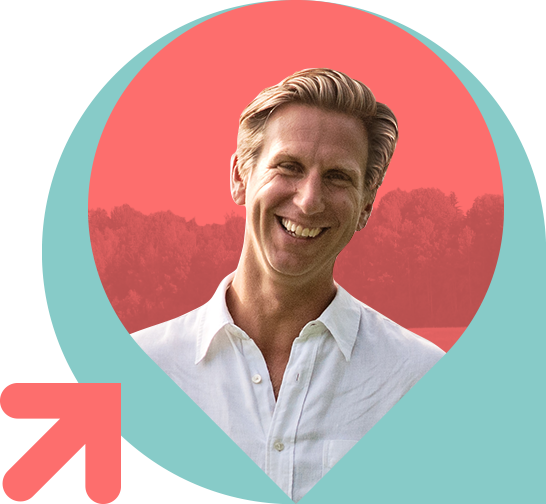Why are we here?

Purpose is a much used word at the moment. We know that on some level it is important, but what does it really mean and how do you find some of it?
Simon Sinek, author of the book “Start with Why”, says that purpose is really the ‘why’, not the ‘how’ or ‘what’ we do.
Purpose creates the impact that we then derive our own sense of meaning from. Having a purpose to bring up children who contribute to society can be very meaningful. A job that helps manage pension funds to allow people to retire with security can be meaningful. Creating art that others enjoy is meaningful.
What is clear from all of this is that your purpose needs to be meaningful, i.e., bigger than yourself. Also, there needs to be self-regard or self-preservation in your purpose. Although the extreme example of giving up your life for another is meaningful, it does somewhat limit your ability to carry on living a life of, or on, purpose.
There are well-documented consequences of living a life not on purpose; the mid-life crisis is the most obvious example. “I am not where I thought I would be, how did I end up doing this, it is too late to change, I feel trapped” … all of these are comments I hear from clients and friends. Illness, burnout, and even early death can be a consequence of living a purposeless life. A 2015 study in the Lancet by Professors Steptoe and Deaton showed that people with the greatest sense of purpose had a 30% reduced risk of early death compared with those with the least sense of purpose.
Pause for a moment here. Having a clear purpose that is meaningful means:
- We are happier
- We are helping others
- We live longer
So, we can see that living your purpose is like a turbo boost. It unlocks another gear and takes you to another level. It is the only way to reach your full potential, and to discover what is possible for you. If we all live our purpose, including our responsibility to the planet and our species, then we can and will survive as a race.
Of course, work can be a major outlet for your purpose, but it's by no means the only one. If your purpose is to help others through honest conversations, then this does not switch off when you finish your working day. Sometimes, though, I see clients living a life of purpose only outside of work; the financier who does a lot of charity work, for example. I am never quite convinced by this.
Once tuned into your purpose, you will be drawn to living it 24/7. It's not always possible, of course - the realities of life can get in the way, and we know that some people have greater barriers than others to this kind of choice – but the less time you spend on purpose, the more likely it is that both your happiness levels and effectiveness will drop.
It is not always possible to live exactly on purpose. Imagine an archery target where your purpose is the bullseye; at times, you will be living close to your purpose, in the next ring out from the bullseye. This is ok. It's realistic and makes space for the other needs of life - like other people's purpose, or the need to eat, or to look after your health. What we want to avoid is living at the edge of the target, or even aiming your arrows at someone else’s target. You cannot be fired from your purpose once you have discovered it.
When you are near your target, or even better, on target, a sense of effortlessness is felt. Things fall into place; openings arise and are taken. Often people say. “Oh, they are so lucky, right place right time”, but what others may see as luck is often actually intention. Purpose provides a filter that shows you what to be open to, what to seek out and what to focus on. Work, on the whole, becomes enjoyable, and time passes quickly. Thoughts of “what am I going to do with my life?” recede, and all that energy is channelled into productive forward motion. This effortlessness comes from a combination of using your strengths for activities that stir your soul and have meaning.
It is not straightforward to boil down your purpose. The question of why we are here has occupied philosophers for centuries. The modern world, from home to education to the workplace, is always showering us with ideas and messages of who we should be, what we should be doing, and so on. Chopping down all these trees to reach the clearing that is really you is hard. To do so, we often need to go back to early childhood, when so much of our character and values are formed. We need to look at extreme moments in our lives, the peaks and troughs, and then analyse these, and pick over them to find the themes.
Here are some questions to think about, and involve others with, that will help you start to elicit your purpose:
- What did you really love doing as a child? What did you always choose to do if you were left to your own devices?
- Think about two peak moments in your life when you felt fulfilled - what were you doing and feeling?
- If you had no constraints, no worries about money, family responsibilities or work that you feel bound to do, what would you love to spend the rest of your life working on?
- What problem faced by individuals, or the world at large, causes you the most concern?
- What is your superpower, something that you are genetically coded to do?
These are hard questions to answer, so take your time and keep iterating.
More Articles
Organisational health - the heartbeat of a business
Organisational health- the heartbeat of a business When we talk about business success, we often look first at strategy; the clever plan, the…
Rituals
Rituals surround us at work, in society and at home. They help manage emotions- think about what happens when someone dies…
How to take the right risks
Individuals and organisations can both benefit from a more entrepreneurial approach. Starting a new business, solving difficult problems…


